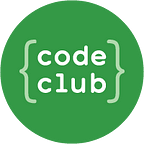Australian Curriculum version 9
On April 1st, 2022, Australia’s State and Territory Education Ministers endorsed version 9 of the Australian Curriculum. For some, this means exciting times ahead, implementing a new version of the curriculum that has had refinements and improvements made based on research and an extensive consultation process. For others this means facing another change/refinement/adaptation of units of work already in place.
The Digital Technologies curriculum has had an impressive journey since its first inception. The original authors of the curriculum describe the complexity of developing it. They started with the knowledge that the first students to complete their entire education with this curriculum will not graduate from school until 2028! To ensure the currency and integrity of this curriculum it is underpinned by 10 core concepts such as understanding how digital systems work, data representation, algorithms, abstraction and implementation.
The rationale of the Digital Technologies curriculum explains how it “empowers students to shape change by influencing how contemporary and emerging information systems and practices are applied to meet future and current needs,” and “gives students authentic learning challenges that foster curiosity, confidence, persistence, innovation, creativity, respect and cooperation.” Australian Curriculum website 2022
So what does this mean for our Code Clubs in schools?
At the moment, there will be no change. Our website currently provides curriculum alignment for every project that we have. We are currently reviewing these to ensure they reflect the curriculum as it is intended. The advice from all education departments is that it is business as usual.
When the v8 Curriculum was released each state developed their own timeline for implementation. States such as South Australia and the Northern Territory set implementation for 2016 while Queensland had a deadline of 2020. The same different timelines will exist for v9 implementation with each state yet to officially release theirs. But as with everything in education, the aim will be to transition the core subjects of English and Maths first with other subjects planned for after.
Once states have finalised their timelines Code Club Australia will develop their own timeline to ensure that all projects are aligned to the new version of the curriculum, ready for schools to continue to access.
So what are the changes?
ACARA has released documentation that explores the changes between version 8 and 9 in detail but there are some real key observations to be aware of.
- The Foundation to Year 2 band will now be separated. Foundation or Prep will have its own achievement standard and content descriptors. Year 1 and 2 will then become its own band.
- The sub strand of acquiring, managing and analysing data has been removed. This was pared back in recognition of the double up that was taking place in mathematics.
- A new sub strand of Privacy and Security has been added.
- In general the content descriptors have been refined to become more accurate and clear. Sometimes this means taking 1 content descriptor and expanding it into 2.
- Elaborations are more precise and give clearer examples of what could be taught.
It is an exciting time to see the review of the curriculum and to watch as it evolves into something better for our kids and teachers. But for now, there is nothing to do except continue to provide amazing coding experiences for our kids using a wide selection of projects from Code Club Australia. Keep an eye out for our next blog posts where we will explore the best projects to support learning in each band of the Digital Technologies curriculum.
Happy coding!
Kaye North, Code Club Australia
